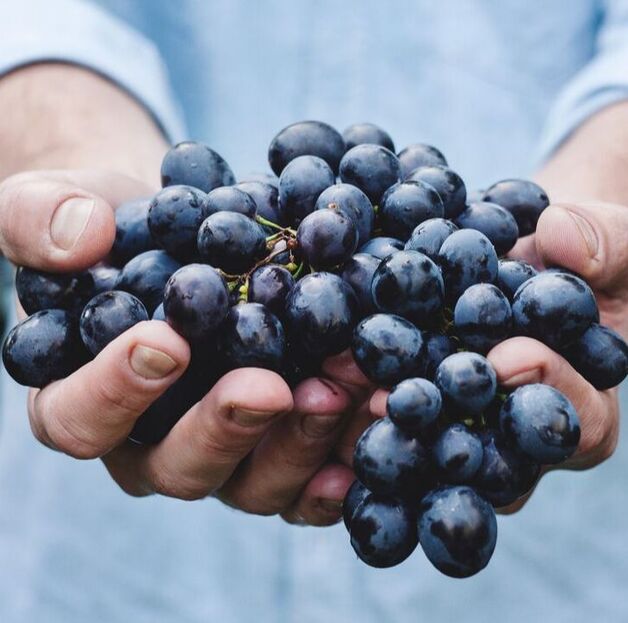|
This article was first published on ProHealth on February 17th, 2019. It was later removed for reasons outlined in this notice. Most of the links on this post are informational, but a few are affiliate links to help maintain this website. Believe it or not, what you put in your mouth affects your mood. The better your diet, the less likely you are to develop depression. If you are already diagnosed with depression, what you eat can either increase or decrease your symptoms. Therapists and other mental health workers are starting to emphasize the importance of a healthy lifestyle for people with mental illness, but preparing healthy food from scratch can be like climbing a mountain for people with depression. Eating healthy is more about increasing the good food rather than cutting out the bad. To avoid feeling overwhelmed, try focusing on small changes, like adding in more of these 5 nourishing foods and reducing foods that don’t support your recovery. Another important tip is to eat something with protein, such as nuts, eggs, or lean meat, every three hours or so to keep blood sugars stable. When your blood sugar drops it can mimic a mood swing or panic attack. 5 Foods to Eat: 1. Avocados You may be sick of hearing about how avocados are a superfood, but this is one food that deserves the hype. Our brain is made up of mostly fat and needs healthy fats as building blocks. Avocados are a good source of tryptophan, which we need to make serotonin, otherwise known as the happy chemical. Try adding one to a smoothie for your daily dose of this savory fruit. 2. Fish Speaking of fats, Omega 3 fatty acids are great for your brain and nervous system. Studies have shown that fish oil supplements can be as effective as antidepressants. It is speculated that Omega 3s reduce brain inflammation and increase serotonin production. If you are a vegetarian or vegan, tofu and walnuts are also high in Omega 3s. 3. Spinach and other dark leafy greens Dark leafy greens are nature’s perfect food. Their depression fighting properties come from folate. Low levels of folate have been linked to depression, so getting plenty into your diet will help increase those levels. Greens are also a natural source of iron, which carries oxygen to your brain. 4. Berries Raspberries, blueberries, blackberries, and strawberries are all packed with antioxidants, which help reduce inflammation at the cellular level. In fact, they have more antioxidants than any other fruit. They also contain many brain-healthy vitamins, such as A, C, and E, that are commonly lower in people with depression. 5. Dark Chocolate Dark chocolate is a health food disguised as a delicious treat, especially when it comes to brain health. Cacao contains phytonutrients which fight and prevent inflammation. These specific phytonutrients also improve circulation, which means more blood to the brain. Milk chocolate doesn't have the same healing power, due to heavy processing and the addition of dairy and sugar (see below). To reap the benefits, it must be high-quality dark chocolate. The higher percentage of cacao the better, so aim for at least 85%. 5 Foods to Avoid: 1. Sugar The brain needs glucose to function but gets plenty from the carbohydrate-heavy Standard American Diet (SAD). The recommended daily dose of sugar is 25g per day for women and 38g for men, which sounds doable until you realize that the average can of soda has about 35-40g of sugar in it. The problem isn’t necessarily sugar, it’s how much sugar we consume. Elevated levels of glucose in the blood impact cognition, memory, and the ability to process emotions. 2. Gluten You've probably heard of celiac disease where gluten causes an autoimmune reaction, but you may not be familiar with the more common diagnosis of non-celiac gluten sensitivity. Studies have shown that removing gluten in people with either IBS or non-celiac gluten sensitivity decreases symptoms of depression. Maintaining a gluten-free diet is becoming easier as compliant foods are more accessible at grocery stores and restaurants. It may be worth a try to see if it helps improve your mood. 3. Processed Foods Processed foods and the brain don't mix. Studies have shown that people whose diet is high in processed foods are at an increased risk for depression. Processed food is anything you buy already prepared and usually comes in a package, can, or box at the grocery store. Processed foods usually contain excess sugar and other additives, which are all those things you can’t pronounce in the ingredients list. Part of improving mood through diet is being aware of what you are eating, which is challenging with processed foods. 4. Dairy Dairy makes some people sluggish and slow, which is the last thing you need if you have depression. Gluten and dairy are considered the two biggest food culprits for inflammation, possibly due to many people being intolerant to both. It’s believed that a protein in cow’s milk called “casein” is to blame. You may not need to give up dairy entirely. Instead, try swapping cow’s milk to goat or sheep’s milk, cheese, and yogurt. 5. Caffeine Caffeine isn't exactly a food, but in some people, it can increase symptoms of depression and anxiety, so limiting your intake is something to consider. Caffeine is linked to increased symptoms of depression. The level of caffeine intake is correlated with the intensity of symptoms in people with mental health issues. In other words, the higher the caffeine intake, the worse the depression. Furthermore, people with depression frequently report problems with sleep. Caffeine can disrupt sleep. If you are having difficulty sleeping or ruminating thoughts, consider switching to decaf or cutting back to 1-2 cups per day. Be cautious when transitioning away from caffeine. Caffeine withdrawal symptoms can make depression worse, so cut back slowly over a long period of time. The bottom line is, don't worry if you eat a hamburger or give in to your craving for ice cream. Stress is also a trigger for depression, so don't become too rigid about your eating habits and practice a lot of self-compassion if you can’t resist that side of french fries. When it comes to depression, anything you can do to ease your symptoms is a positive, especially if it’s as easy as adding in a few more cruciferous vegetables. "Nothing feels as good as becoming who you were meant to be." - Jenna Scatena
0 Comments
Leave a Reply. |
WelcomeI'm Kerry (She/Her/Hers) and I am a licensed therapist, group facilitator, poet, writer, & speaker. This is a place to acknowledge and validate our suffering and trauma, while also learning how to turn toward aliveness and spaciousness. Categories
All
Archives
April 2024
|
|
Copyright © 2024 Kerry J Heckman All rights reserved. Disclaimer.
|
|




 RSS Feed
RSS Feed